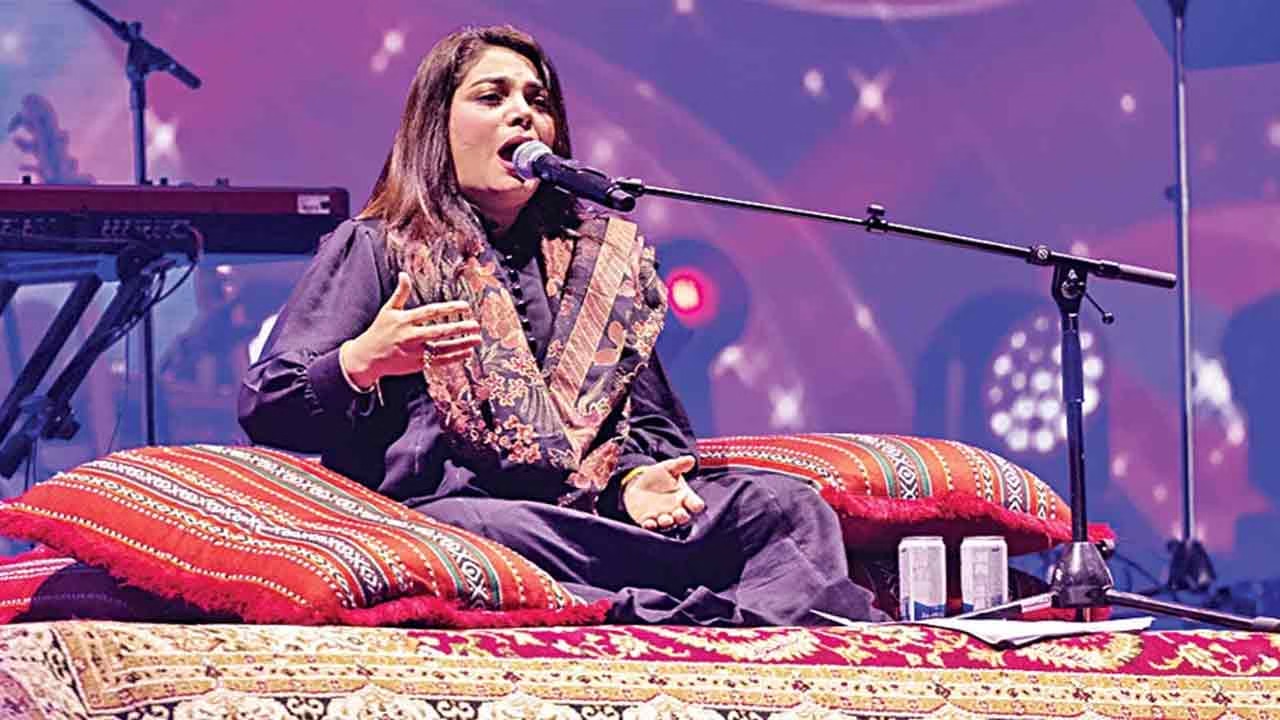Renowned Pakistani folk and Sufi singer Sanam Marvi has once again found herself at the center of public discussion after openly addressing the ongoing Sanam Marvi criticism she faces for her religious pilgrimages. Speaking in a recent private TV program, the celebrated artist shared her thoughts on the negativity and trolling that often follows her whenever she performs Hajj or Umrah.
In an emotional yet composed statement, Sanam Marvi revealed that while she considers these pilgrimages deeply personal and spiritual, the criticism on social media has been relentless. For many, her story highlights the broader debate about the boundaries between personal faith and public perception in the world of showbiz.
The Nature of the Sanam Marvi Criticism
The Sanam Marvi criticism largely stems from a recurring sentiment on social platforms: that as an artist who sings throughout the year, she should not be engaging in such sacred religious acts. Sanam explained that people often make comments like, She sings all year and now she’s performing Hajj or Umrah or She will return from Umrah and start singing again.
While such remarks may be rooted in personal beliefs about faith and profession, they have created a challenging environment for artists like Marvi who wish to balance their careers with their spiritual obligations.
Balancing Profession and Faith
Sanam Marvi emphasized that singing is her profession and primary source of livelihood. She questioned why people fail to understand that one’s career does not negate their right to perform acts of worship. Her stance is a reminder that in Islam, earning a halal income through legitimate means is permissible, and personal worship remains an individual’s choice.
In Pakistan’s entertainment industry, many artists have navigated similar challenges. The Sanam Marvi criticism is not unique, but her public acknowledgment of the issue has sparked conversations about whether the public should have the right to judge an artist’s faith based on their profession.
The Reality of Social Media Trolling
Sanam admitted that she prefers to remain silent in the face of such trolling, recognizing that responding may only fuel further negativity. Her approach aligns with a growing number of public figures who choose not to engage with online hate.
According to a 2024 report by DataReportal, Pakistan now has over 71 million active social media users, with platforms like Facebook, Instagram, and X (formerly Twitter) serving as key hubs for public opinion. This vast audience means that celebrities are under constant scrutiny, making it nearly impossible to avoid criticism altogether.
The Sanam Marvi criticism illustrates how quickly narratives can spread online, especially when they tap into cultural or religious sensitivities.
The Double Standards in Public Perception
A notable point in Sanam’s comments is the double standard often applied to public figures. While ordinary citizens can perform religious pilgrimages without scrutiny, celebrities—especially those in entertainment—are judged through the lens of their public persona.
This raises an important question: Should faith be judged differently based on one’s career? Sanam Marvi’s criticism sheds light on a societal tendency to blur the line between personal devotion and professional choices.
Why Sanam Marvi’s Response Matters
By speaking out, Sanam Marvi has given a voice to many other artists who face similar backlash. Her calm, non-defensive approach sets an example of how public figures can handle criticism without compromising their dignity.
Furthermore, her story encourages the public to practice empathy. Behind every celebrity is a human being with personal beliefs, emotions, and the right to worship without prejudice.
The Bigger Picture: Faith, Profession, and Respect
The Sanam Marvi criticism is more than just a personal controversy; it reflects broader social attitudes toward the entertainment industry and religion in Pakistan. It invites a much-needed discussion about respecting personal boundaries and recognizing that one’s profession should not be used as a basis to question their sincerity in matters of faith.
In a society where digital conversations often lack nuance, stories like Sanam’s can help foster a more understanding and respectful dialogue. After all, the essence of faith lies in personal sincerity, not in public validation.
The Sanam Marvi criticism highlights the ongoing tension between public image and personal belief for celebrities in Pakistan. While criticism is inevitable in the age of social media, Sanam’s response reminds us of the importance of tolerance and respect.
Her decision to remain silent in the face of negativity demonstrates strength and maturity, showing that sometimes the most powerful response is not to respond at all. As audiences, we can choose to shift the conversation toward understanding and acceptance, recognizing that faith is deeply personal—and no profession should strip someone of their right to practice it.



